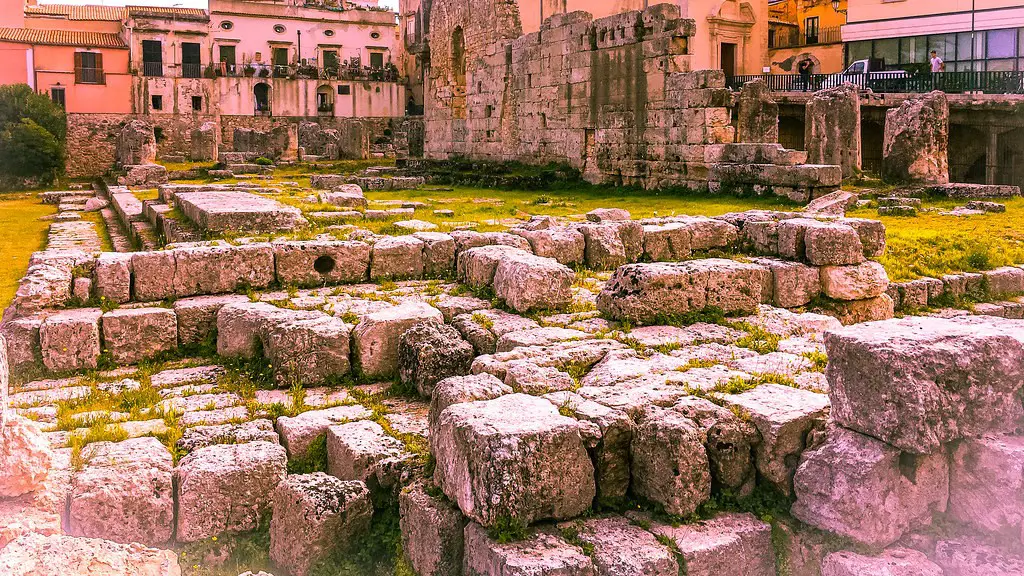Rise to Power
Julius Caesar was a highly influential figure in Ancient Rome who rose to power through a combination of political genius, military prowess and charisma. Caesar was a member of the Roman patrician class and secured military posts of high rank. His early career was marked by an impressive record of victories in the Gallic Wars and other military campaigns, which allowed him to become one of the leading figures of the Roman Republic. During his lifetime, Caesar was highly respected by the Roman people and was often seen as a hero who could be entrusted to solve the political crisis of Rome.
Senate Reforms
In order to secure his power, Caesar organized a series of reform programs that changed the structure of the Roman Senate. He also worked to strengthen the loyalty of the people to himself, granting them more rights and privileges than they previously held. For example, he granted Roman citizenship to those of non-Roman backgrounds, introducing a policy of enfranchisement. He also reduced the debt burden of the less privileged and introduced food price controls in order to make life easier for the lower classes. These policies made him increasingly popular with the Roman people and strengthened his political standing.
Changes to Roman Society
Julius Caesar was a major force in re-shaping the Roman society of the time. He introduced a series of laws which were designed to strengthen the legal system and protect the rights of the less privileged. He argued that the law should be impartial and that citizens should be able to trust the government to protect their rights and freedoms. He also introduced educational reforms which allowed for the teaching of Latin and Greek to Roman citizens. This enabled them to better their understanding of Roman law and philosophy, strengthening their sense of belonging to the Roman state.
Military Achievements
As a military leader, Julius Caesar was highly successful. He led his armies to victory in many battles, including the Battle of Pharsalus, which secured his position as the supreme ruler of Rome. He was also instrumental in the conquest of Gaul, where he famously said, “Veni, Vidi, Vici” (“I came, I saw, I conquered”). Caesar’s military successes allowed him to expand the influence of Rome, ushering in a period of growth and prosperity.
Political Legacy
Many historians argue that Caesar’s legacy in Rome was far-reaching and his policies were highly influential to the development of the Roman Empire. He was an advocate for multiculturalism, integrating a wide variety of cultures into the Roman state. He was instrumental in shaping the legal system and introducing reforms to the Senate. He is also often credited with introducing an unprecedented level of stability and prosperity to the Roman state.
Assassination
Julius Caesar was assassinated in March of 44BC by a group of his political rivals, which lead to a devastating civil war and the eventual rise of Caesar’s heir, Octavian, who assumed the title of emperor and brought an end to the Republic. Despite this, the memory of Julius Caesar still remains as one of the most iconic figures in the history of Ancient Rome.
Influence on Later Rulers
Julius Caesar’s influence extended beyond the period of Roman history he was active in. Many later Roman rulers adopted his style of governing and engaged in similar reforms to those carried out by Julius. For example, Trajan and Hadrian both made reform policies that were inspired by Caesar’s precedents. As a result, Julius Caesar has often been seen as one of the most influential figures in the history of Ancient Rome.
Conclusion of Importance
Julius Caesar was an important leader in Ancient Rome who was responsible for introducing a series of reforms to the Senate, strengthening the legal system and introducing educational reforms. He was highly successful as a military leader, conquering vast swathes of the Roman Empire and expanding its influence. He also contributed to the stability and prosperity of the Roman state. Caesar’s legacy can still be felt in the Roman Empire today and he is often credited as one of the greatest figures in the history of Rome.

